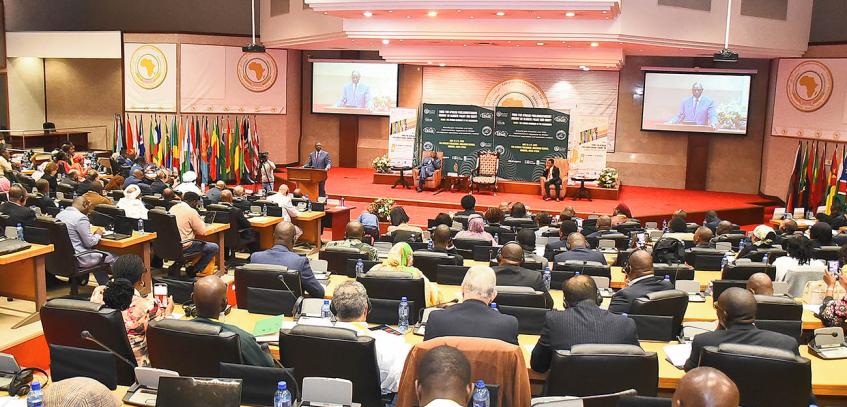Participants to the high-level Third Pan-African Parliamentarians Summit on Climate Policy and Equity have called on African countries to enhance national budgets to address the climate change scourge and to also focus on adaptation financing.
The two-day Summit underway at the Pan-African Parliament (PAP) precinct in Midrand, South Africa is taking place on the sidelines of the Sixth PAP Second Ordinary Session. The PAP plenary session kicked off on May 15 and will run through to June 2 2023 under the African Union theme of the year "The Year of AfCFTA: Accelerating the Implementation of the African Continental Free Trade Area."
Acknowledging the gravity of the climate change crisis, Ms Veronica Jakarasi, Head of Climate Finance, African Enterprise Challenge Fund, said there was a need for countries to go beyond submission of their Nationally Determined Contributions (NDCs) to practical action. In their NDCs countries are compelled to communicate actions they will take to reduce their greenhouse gas emissions in order to reach the goals of the Paris Agreement. The Paris Agreement overarching goal is to hold the increase of the global average temperature well below 2 degrees Celsius above pre-industrial levels.
"We need not only see plans to implement the NDCs but we need to see the actual implementation on the ground. As a result we need to enhance national budgets and make sure the budgets speak to climate change issues. This will demonstrate some level of leadership," said Ms Veronica Jakarasi.
However, she also pointed out that African national budgets were already under strain from dealing with other human rights basics such as access to food, health services and education.
"This leaves Africa more vulnerable in addressing climate change. There are also policy inadequacies and lack of private sector financing to enhance NDCs implementation."
Speaking at the Summit, Ambassador of Egypt to the Republic of South Africa, H.E Ahmed Taher Elfadly, shared on the outcomes of COP27 which he termed as remarkable.
"COP27 was remarkable in terms of its outcomes. The African Presidency and constituencies agreed on funding arrangements as Africa was in the hearts and minds of our work. However, without appropriate financing, we should expect no meaningful progress on implementation. If we are really committed, we need to deliver all components of financing," said H.E Ahmed Taher Elfadly.
Cognizant that the first global stocktake will take place this current year and every five years thereafter, Dr Ephraim Mwepya Shitima, Chairperson of the African Group of Negotiators, called for African countries to do more in domestic financing of climate change actions:
"African countries need to do more in terms of resource mobilization but developed countries also have an obligation to provide resources. We need to put more effort and spend more on mitigation."
Dr Olufonso Somorin of the African Development Bank noted that the global goal was moving towards adaptation given that climate change is already on us, changing the dynamics on the ground and even changing development values.
"We need a strong alignment between Strategic Plans at national level and NDCs. Mainstreaming NDCs in investment planning within Ministries of Finance ensures that funds are set aside for climate change. 90 percent of available funds for climate change go towards mitigation and less to adaptation so it is important to elevate our efforts to adaptation. Adaptation is local and often occurs at household level so we need more funds channeled towards this initiative," said Dr Olufonso Somorin.
The PAP is hosting the Third Pan African Parliamentarians Summit on Climate Policy and Equity in conjunction with the Pan African Climate Justice Action and the African Climate Legislation Initiative. The Summit is running under the theme "The Continent At the Crossroads - Graceful just transition and NDCs implementation responsive to African Development aspirations and economic realities."
-Ends-








